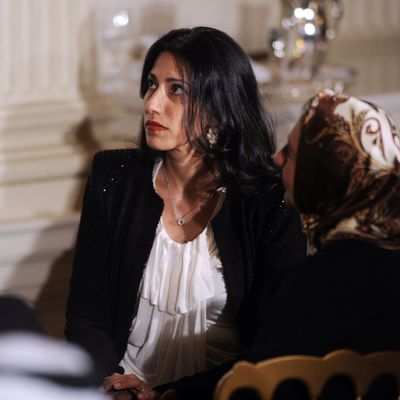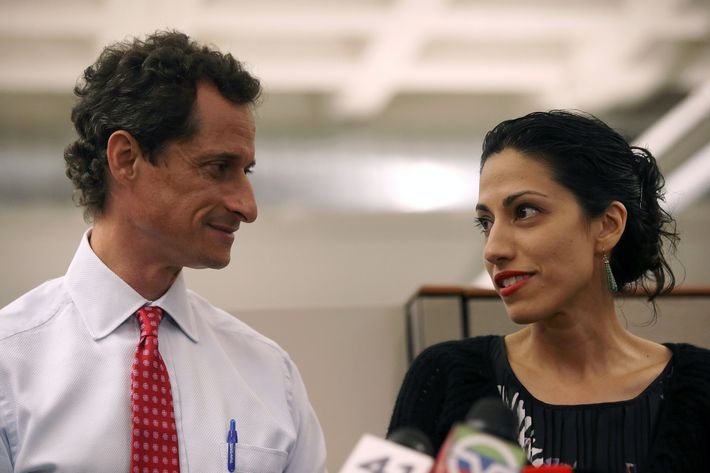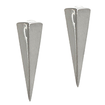
When news of Anthony Weiner’s post-resignation sexting broke yesterday, both Weiner and Huma Abedin were already awaiting press about a new wave of explicit messages. Perhaps in preparation for what was to come, Abedin had penned a personal essay for the September issue of Harper’s Bazaar, following the “stand-by-my-man” template she’s stuck to for the past year.
In the essay, titled “The Good Wife,” Abedin writes:
Standard. Poised, composed, cool. The words of a fiercely private woman responding to a scandal. This is the image that has made Abedin a longtime favorite of the big fashion magazines and has generated the publicity that has held the public’s attention for so long. She’s sophisticated enough to earn a spread in Vogue, as she did in 2007, but also respected for her ambition and intelligence. Her D.C. glamour and love of designers like Oscar de la Renta has put her on just as many best-dressed lists as power lists. Voters are already following her campaign style. She bridges the gap between high-power ambition and approachable woman. The Harper’s essay, and accompanying beautiful portrait, is what we’ve come to except of Abedin.
But if the Harper’s essay was loyal-wife boilerplate, her press-conference appearance was something altogether different. Instead of a glam, bulletproof politico, we saw the live-TV emotions of someone forced to maintain composure alongside a husband who couldn’t keep his wang off the Internet. “Putting yourself out there comes with a cost,” Abedin wrote in Harper’s, and at yesterday’s hasty press conference, we saw the cost of continuously putting herself on the line for her husband’s mayoral bid.

Was she rattled? Absolutely. Was she composed? Barely. She looked thin, frumpy, wan. Her nondescript black sweater over a throwaway floral sundress was the outfit of someone who had been through a lot and someone who was beginning to come undone. Even her trademark red lipstick couldn’t hide the toll her position was taking. Gone was the bulletproof wife — and in her place was a much more compelling, more recognizably real-life Abedin.
After acknowledging her nerves, she read from prepared text that was more honest and telling than the Harper’s essay. She said: “Our marriage, like many others, has had its ups and its downs. It took a lot of work and whole lot of therapy to get to a place where I could forgive Anthony.” Abedin went on to discuss the difficulty she had making the decision. “It was not an easy choice in any way, but I made the decision that it was worth staying in this marriage,” she said. “That was a decision I made for me, for our son, and for our family.”
Some viewers were skeptical. Speaking to the New York Post, political-media strategist Adam Weiss compared Abedin to her mentor Hillary Clinton: “They are that power hungry that she stands there and she accepts the disgracefulness of serial cheating from her husband. Huma comes from the Clinton school of forgiveness — power is more important than dignity.”
Actually, unlike the version of Abedin from Harper’s, Vogue, or The New York Times Magazine, this is a woman I can stand behind. She’s always been well-liked and well-respected while supporting her scandal-prone husband. While I find that dignified woman fascinating, I always found her flawless persona slightly off-putting. Once unflappable, she seems finally — well, slightly flapped. But also genuine. Maybe it was her admission of the long therapy and struggle that preceded her decision to forgive him. Maybe it was the weighty looks they exchanged or her obvious nerves. But yesterday Abedin lost some of that armor of perfection. Yesterday, we saw a woman who still believes in her husband, but is sorting through how complicated, uncertain, and exhausting that task is.









